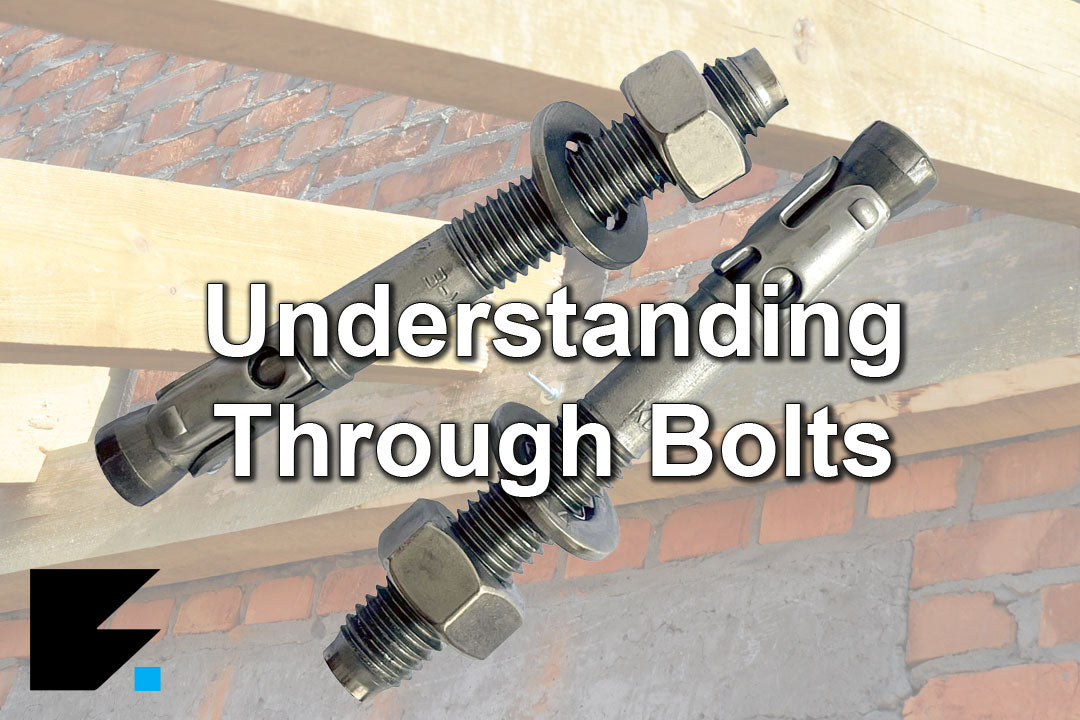Through Bolts & How To Use Them Correctly
When you’re knee-deep in a construction project, the last thing you want is for your fixtures to come tumbling down because you picked the wrong fastener. In the UK construction scene, ETA option 1 through bolts are often the go-to choice, but are they always the best option?
Let’s dive into the nitty-gritty of through bolts and their competition—coach bolts and chemical anchors—to help you make the right call for your next project. Whether you’re a seasoned pro or a DIY enthusiast, knowing your fasteners can save you from a world of hurt (and a lot of rework).
Understanding Through Bolts
Through bolts, also known as sleeve anchors, are the Swiss Army knife of fasteners in UK construction. They’re basically a threaded bolt inside an expansion sleeve that expands when tightened, creating a super-strong hold in masonry or concrete.
Advantages:
- Great load-bearing capacity
- Works in both solid and hollow materials
- Removable and reusable
- Can bear loads immediately after installation
Disadvantages
- Requires pre-drilling
- Not ideal for very thin materials
Comparing Other Fasteners
Coach Bolts
Coach bolts, or carriage bolts, are mainly used in woodworking and timber construction.
Pros:
- Tamper-resistant with a smooth, round head
- Perfect for wood-to-wood or wood-to-metal connections
Cons:
- Not suitable for masonry or concrete
- Less versatile than through bolts
Chemical Anchors
Chemical anchors use a resin-based adhesive to secure bolts or rods into drilled holes.
Pros:
- Excellent for weak or damaged masonry
- High load capacity
- Minimal expansion stress on base material
Cons:
- Requires curing time before loading
- More expensive than mechanical anchors
Choosing the Right Fastener for Your Job
When deciding between through bolts and other fasteners, consider these factors:
- Base material (concrete, wood, masonry, etc.)
- Load requirements
- Environmental conditions (moisture, temperature)
- Installation process and time constraints
- Removability needs
- Cost considerations
Case Studies: Real-World Applications
Scenario 1: Securing a Heavy Mirror or TV screen
For hanging a heavy mirror or TV screen on a solid brick wall, through bolts are a solid choice. They offer the strength you need and can be installed with basic tools. Simply drill your hole, knock in the through bolt and unscrew to tighten.
Scenario 2: Building a Wooden Deck and Garden Fencing
Coach bolts are perfect for building a wooden deck. They provide a clean finish and strong wood-to-wood connections. Hex bolts and coach screws can also be used for fixing fence posts to walls.
Scenario 3: Anchoring Industrial Equipment
If you’re securing heavy machinery to a factory floor, chemical anchors are your best bet, especially if the concrete is older or prone to cracking.
Scenario 4: Fixing Beams or Wall Supports
When securing beams to walls to support roof trusses, through bolts are a good choice. They provide a secure fixing and are easy to align. One thing to remember is to check the depth of the bolt in the wall and combine it with the thickness of your beam to ensure you have a long enough thread.

Installing an M12 x 100mm Through Bolt
Here’s a quick guide for installing an M12 x 100mm through bolt:
- Drill bit size: Use a 12mm diameter drill bit.
- Drilling depth: Drill to a depth of 75mm.
- Maximum fixture thickness: The bolt can handle up to 25mm of fixture thickness.
- Effective anchoring depth: 50mm (75mm drilling depth minus 25mm fixture thickness).
- Minimum edge distance: Keep at least 72mm from any edges.
- Tightening torque: Follow the manufacturer’s recommendations.
- Hole cleaning: Clean the hole thoroughly after drilling.
- Installation: Insert the through bolt through your fixture and into the cleaned hole. Tighten the nut to the recommended torque.
Conclusion
While through bolts are versatile and reliable for many UK construction projects, they’re not always the best solution. By understanding the strengths and weaknesses of various fasteners, you can make informed decisions that ensure the safety, efficiency, and longevity of your construction work. Always consider the specific requirements of your project, and when in doubt, consult with a structural engineer or experienced tradesperson.
Why Buy Through Bolts from Fixabolt?
- Specialisation: Focused selection of quality industry standard products.
- Flexible quantities: Buy from 1 to 10,000 units.
- Free shipping: On orders over £50.
- Trade discounts: 10% off for trade professionals.
- Volume discounts: Save more when you buy more.
- Rewards program: Earn points for discounts.
- Competitive pricing: Trade prices for all.
- Stainless steel expertise: Popular sizes always in stock.
- Fast delivery: Overnight delivery for in-stock items.
- Technical information: Comprehensive guides available.
Choosing the right fastener not only ensures the stability of your structure but can also save time, money, and potential headaches down the line. Choose wisely, and your construction project will thank you for years to come.

